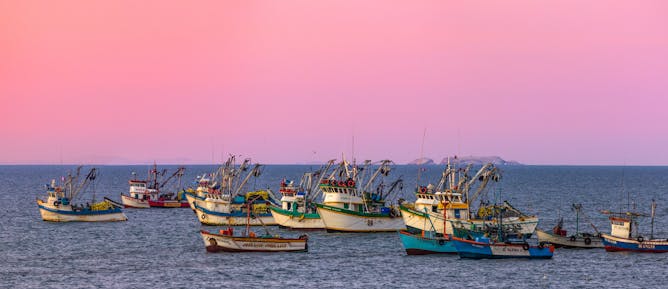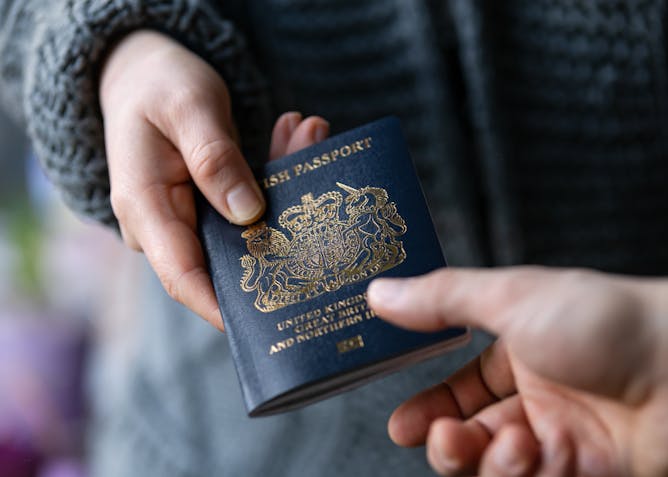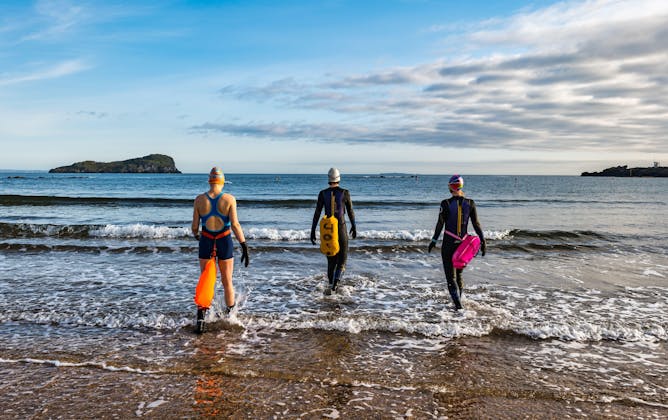|
I first heard of El Niño when visiting family in Los Angeles in 1998. The Pacific climate phenomenon, involving different surface temperatures in different parts of the ocean, had led to so much extreme weather across California that year that a poor guy listed in the phone book under “Nino, Al” had been bombarded with abusive calls (I just double-checked my memory: it really happened.
More recently, the Pacific has been in its opposite state – La Niña – which tends to slightly cool the planet and cause various other climatic anomalies to ripple around the world. La Niña typically lasts for nine months or so, but this one has gone on for three years and only now appears to be ending. Will Roberts and Jayasankar Pillai explain how this unusually long La Niña has affected worldwide weather, and what the future has in store.
A new court ruling affecting the children of EU nationals settled in the UK means thousands of people who thought they were British could effectively lose their citizenship. And we hear from a microbiologist on whether pools or wild swimming spots have more germs.
Plus we'll be bringing you analysis of Rishi Sunak's new Brexit deal on Northern Ireland later in the day.
|

|
Will de Freitas
Environment + Energy Editor
|
|

El Niño was given its name by Peruvian fishermen.
Christian Vinces / shutterstock
William Roberts, Northumbria University, Newcastle; Jayasankar Pillai, Northumbria University, Newcastle
The Pacific Ocean climate pattern is the opposite of El Niño.
|

Max_555/Shutterstock
Alice Welsh, University of York
The British citizenship of the children of EU nationals born before October 2 2000 could be at risk.
|

Sally Anderson/Alamy Stock Photo
Primrose Freestone, University of Leicester
As well as the joy that comes with swimming, there can also be some dirty risks.
|
Politics + Society
|
-
Heath Pickering, KU Leuven; Athanassios Gouglas, University of Exeter
These influential people go on to work in roles that enable them to use their contacts from their old jobs.
-
Christoph Bluth, University of Bradford
People who get too close to the seat of power in North Korea, including the Supreme Leader’s relatives, have a way of ending up dead.
|
|
Arts + Culture
|
-
Ruth Barton, Trinity College Dublin
How tax breaks, financial investment and Pierce Brosnan contributed to Ireland’s domination of the 2023 Academy Award nominations.
-
James Pickles, University of Brighton
Vigils for LGBTQ+ people turn public spaces into a collective space of belonging with one another
-
Valerie Fraser, University of Essex
During the medieval and early modern era, the Iberian Peninsula was an extraordinary cultural melting pot.
|
|
Cities
|
-
Yiwen Wang, Xi'an Jiaotong Liverpool University; John Pendlebury, Newcastle University
When buildings with difficult pasts are repurposed, the process often involves navigating between omission and selective remembrance.
|
|
Environment
|
-
Sophie Lund Rasmussen, University of Oxford
Research on Denmark’s hedgehogs offers insight into their cause of death – and how to help them.
|
|
Health
|
-
Simon Cork, Anglia Ruskin University
Overweight or obese patients who meet certain criteria will soon be able to access the much talked about weight-loss jab.
-
Sara Smith, Anglia Ruskin University
Don’t smoke around babies, wash your hands, and pay attention to the parents, too.
|
|
Science + Technology
|
-
Sharon Geva, Anglia Ruskin University
Some people have subtitles synaesthesia’ which means they see all speech appear as writing in their mind. And they only realised not everyone thinks this way when they saw a research study ad.
-
Richard Markoff, International Institute for Management Development (IMD); Ralf Seifert, International Institute for Management Development (IMD)
AI and 3D printing could transform the way we make things, but many companies have been slow to take advantage.
|
|
Podcasts
|
-
Daniel Merino, The Conversation
A local legend of a mysterious bird with big eyes grew into the discovery of the Príncipe scops owl. A biologist on the team tells the story of finding and cataloging this new species.
|
|
|
|
| |
|
|
28 February 2023
•
Manchester
|

|
|
|

|
9 March 2023
•
Manchester
|

|
16 March 2023
•
Manchester
|

|
|
|
|
| |
| |
| |
| |
| |
|
|